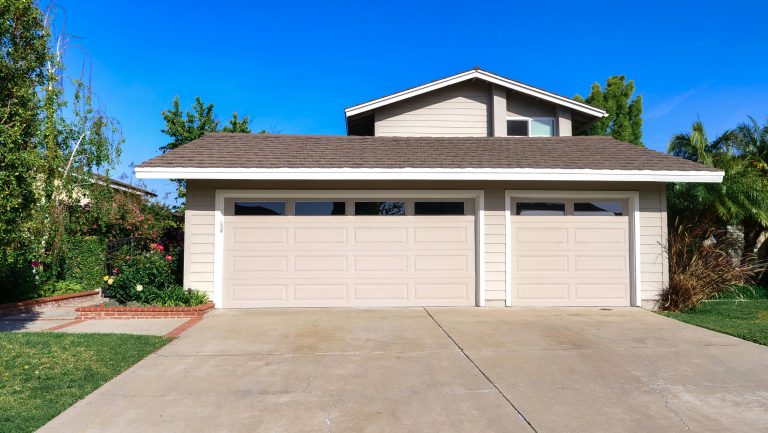

Before hiring a roofer, it’s vital to have a basic understanding of what your roof requires. Is it a simple repair job, or do you need a complete roof replacement? Knowing the current condition of your roof helps in consulting the right type of services. An inspection by a professional can significantly aid in identifying potential issues that may not be visible to an untrained eye. It is often during these inspections that hidden problems, such as water damage or structural weaknesses, come to light.
Understanding your roof’s needs also involves recognizing the different material options available for repairs or upgrades. Materials such as asphalt, tile, and metal come with distinct pros and cons, impacting both the longevity and the cost of your project.
Another critical aspect is the style and color of the roofing material, as this will affect your home’s curb appeal. When it comes to roof repair, selecting the right material can prevent future issues. Consult with professionals to know about the best-suited materials compatible with your local climate.
Finally, it’s essential to decide on a budget for your roofing project. While it may be tempting to opt for the least expensive service, cheaper solutions can lead to costly repairs down the line. Investing in quality work and materials ensures the longevity and effectiveness of your roof. Requesting a detailed estimate from potential contractors can provide a clearer picture of what costs to expect. Adequate financial planning is crucial in securing a roofing solution that meets both your immediate and long-term needs.
Choosing the Right Roofing Contractor
Once you understand your roof’s situation, the next step is selecting the right contractor. One way to start is by asking for recommendations from friends, family, and colleagues. A contractor with a strong local reputation can offer assurance of quality and reliability. Additionally, online reviews are invaluable resources for evaluating a contractor’s past work and customer satisfaction. Make sure to compile a list of potential contractors and compare their services before making a decision.
Insurance and licensing are non-negotiable aspects when hiring a roofer. A legitimate contractor should carry liability insurance to cover potential damages during the project. Moreover, workers’ compensation insurance is crucial for protecting you against any injuries that occur on your property. Always ask to see proof of insurance and licensing; a reputable contractor will provide these without hesitation. Ensuring these credentials helps protect you from unforeseen liabilities.
Interviewing multiple contractors allows you to gauge their expertise and communication skills. During these interviews, inquire about their experience, previous projects, and approach to problem-solving. Good communication is a sign of professionalism and helps ensure that you and the contractor are on the same page. Ask for a written contract that includes the project scope, cost estimates, material lists, and timelines. Finalizing details in writing will clarify expectations and prevent misunderstandings.
Understanding Contracts and Warranties
A comprehensive contract is essential before any work begins on your roof. This document should outline the scope of the project, including a list of materials, labor costs, and timelines. Any verbal agreements should be codified to prevent future disputes. Providing a thorough contract emphasizes the contractor’s commitment to transparency and accountability. It allows you to clearly communicate any changes or expectations throughout the duration of the work.
Warranties are another vital component to review. Make sure you understand the warranties offered on both the workmanship and the materials used. A workmanship warranty covers flaws in the installation process, while a manufacturer’s warranty deals with material defects. Long-term warranties indicate confidence in both quality and performance, providing peace of mind for the homeowner. Reviewing warranty terms thoroughly before signing helps ensure you are well protected against future issues.
In addition to warranties and contracts, setting clear payment terms is critical. Establish a payment schedule that aligns with project milestones rather than upfront payments. This approach protects you financially and ensures work progresses as planned. A deposit may be required, but retain the majority of funds until the completion and inspection of the job. Clearly defined payment terms benefit both parties, fostering a successful and satisfactory project outcome.
Maintenance and Follow-Up After the Job
After the completion of your roofing project, regular maintenance is key to prolonging its lifespan. Basic upkeep such as cleaning gutters and inspecting for damage can prevent minor issues from becoming significant problems. Schedule routine professional inspections to catch any potential issues early. Properly maintained roofs can last much longer, protecting your investment in both the short and long term. Partnering with a reliable roofer for follow-up maintenance services ensures continuity and quality.
Communication with your contractor doesn’t stop after the job is done. Establish a plan for addressing potential issues that may arise, like leaks or material failures. Understanding the terms of the warranty will clarify what issues are covered and how they will be handled. Having a reliable contact in case of emergencies can be invaluable, providing swift solutions to unforeseen problems. Regular check-ins with your contractor keep your roof in optimal condition and provide peace of mind.
Finally, consider documenting the project’s progress and completion for future reference. Keeping records of all contracts, invoices, and communications can be helpful if warranty claims are needed. These documents serve as a comprehensive history of your roof, making it easier to manage future maintenance and repairs. Being proactive in your roof’s care and documentation shows forethought and can be beneficial if you decide to sell your home. A well-documented roofing project adds value and demonstrates responsible homeownership.








